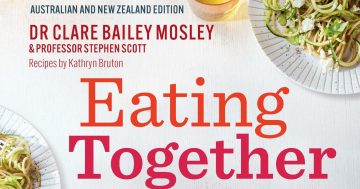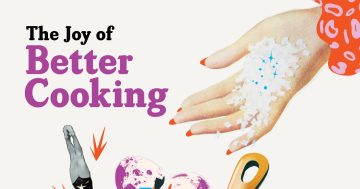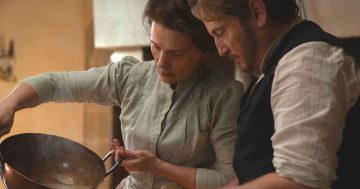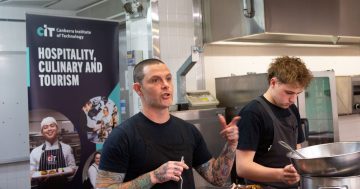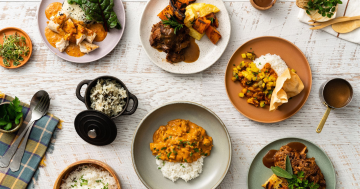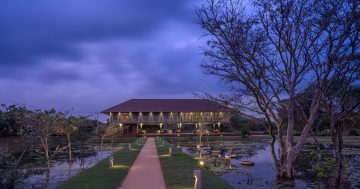By Christine Salins.
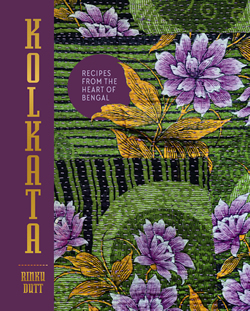 Mughal, Chinese, Tibetan and British colonial elements combine to give Kolkata a unique food landscape. The capital of West Bengal – known as Calcutta when it was under colonial rule – is famous for its fish, vegetables, and desserts. Bengalis place great emphasis on eating well and their regional specialities are revered.
Mughal, Chinese, Tibetan and British colonial elements combine to give Kolkata a unique food landscape. The capital of West Bengal – known as Calcutta when it was under colonial rule – is famous for its fish, vegetables, and desserts. Bengalis place great emphasis on eating well and their regional specialities are revered.
Londoner Rinku Dutt was born to Bengali parents and frequently travels back to Kolkata to see grandparents (her paternal grandfather used to own one of the city’s most iconic and popular restaurants, Central Hotel, later re-named Amber).
Dutt fell in love with Kolkata when she spent three years living and working there. “…Bengalis are big foodies,” she says. “Food is key to our lifestyle, and conversations often revolve around it. The love for cooking food, eating food, and talking about food is a cycle that plays out on repeat in nearly every Bengali household. And the more I discovered about the variety in Bengali cuisine, the more I became fascinated by it.”
She was so inspired by the food that she wanted to bring the flavours back to London. That led to her opening her Bengali food truck and pop-up restaurant, Raastawala, in London and in turn to a stunning book, simply titled Kolkata (published by Smith Street Books, distributed by Thames & Hudson Australia, $55).
The city is brought alive with evocative food and travel photography, telling the story of a city bursting with energy and diversity, of numerous cultures and traditions, with ever-popular street food, a thriving restaurant and café scene, and the legacy of family favourites handed down through generations.
Many of the dishes in Kolkata are family recipes that Dutt faithfully recorded while watching her parents cook. “This was actually quite difficult, as so much Indian cooking is done by andaaj, which translates to ‘estimate’. The food is quite literally cooked by ‘measurements of the eye and instinct’.
“When I asked my parents about this, they would laugh it off and say that’s the way they were taught to cook, and sure enough the dishes always turned out the same and were always delicious.”
Ranging from sustaining breakfasts, simple lunches and favourite street-food bites to rich and fragrant dinners and delectable sweets, the recipes in Kolkata can be easily recreated in home kitchens.
In many Bengali recipes, fish is coated with turmeric and salt and then fried before the preparation of the actual dish begins. These days, there’s a move to making dishes healthier. Dutt makes this salmon dish as an oven bake, with no frying involved.
 Mustard Salmon Fillets
Mustard Salmon Fillets
4 salmon fillets, skin on, descaled and boneless
For the spice paste:
2 tablespoons canola oil or mustard oil
2 teaspoons Greek-style yoghurt
2 teaspoons English mustard powder
1 teaspoon wholegrain mustard
½ teaspoon ground turmeric
½ teaspoon white poppy seeds
1 green chilli, finely chopped
1 tomato, coarsely grated
½ teaspoon salt
Preheat the oven to 180°C.
Place all the spice paste ingredients in a bowl and mix well into a thick paste.
Line a shallow baking tray with foil and place the salmon fillets on it. Cover the fillets with the spice paste and rub it in well, using your hands to ensure all sides of the fillets are coated. Arrange the fillets skin-side down and bake for 12 to 15 minutes until cooked through (the fish should easily flake).
Immediately remove from the oven and serve with boiled rice.
Recipe and image from: Kolkata, by Rinku Dutt, published by Smith Street Books, distributed by Thames & Hudson Australia, rrp $55.


